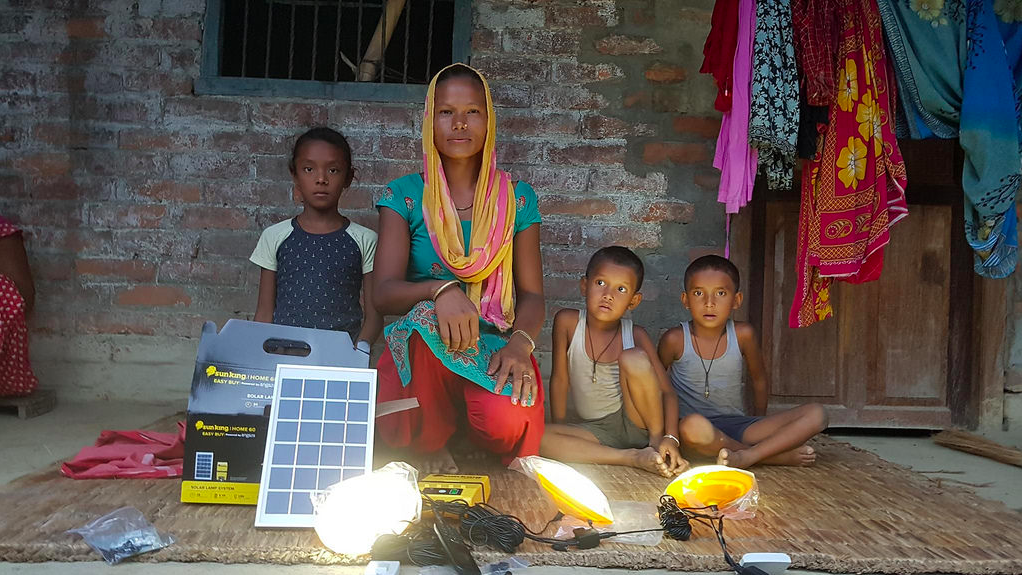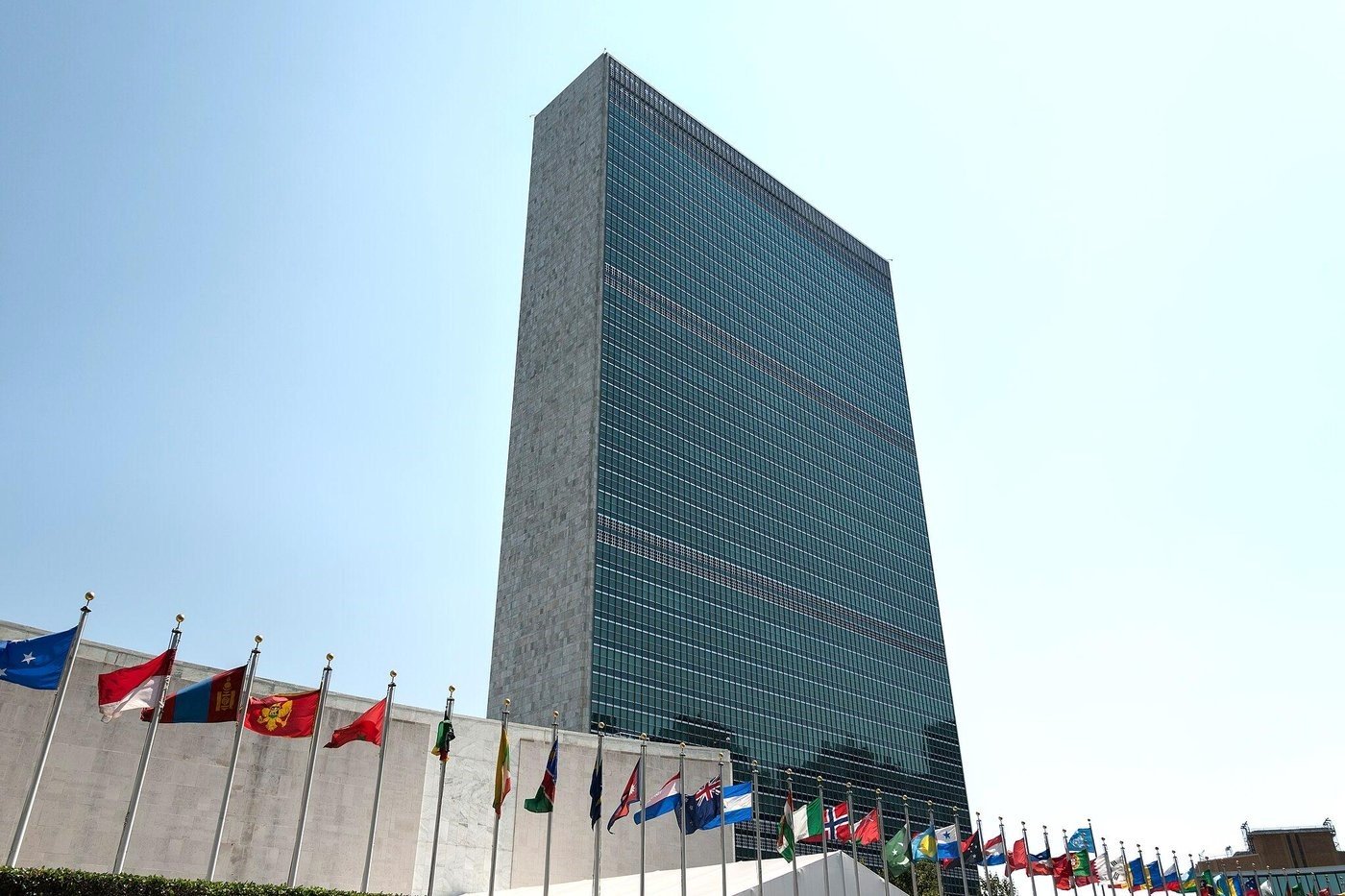Nepal is on the UN’s list of least developed countries because it faces a number of challenges in achieving many of the Sustainable Development Goals (SDGs). Empower Generation (EG), a social enterprise, is working to address SDG 5 (gender inequality), SDG 7 (access to affordable clean energy), and SDG 8 (providing job opportunities and sustainable economic growth). EG is breaking down prevailing misconceptions about women in business, providing access to clean reliable energy, and offering employment—one rural Nepalese community at a time.
Empower Generation (EG)
Empower Generation was founded in 2011 by Anya Cherneff, Bennett Cohen and Sita Adhikari. Anya was looking to offer sustainable employment to women otherwise vulnerable to slavery while Bennett was thinking about how to enable widespread adoption of clean energy in developing countries. Sita ran a microfinance cooperative but wanted to start a business to employ women in her community. When Anya and Bennett met Sita in Nepal, together, they identified a tremendous opportunity to create a gender and energy paradigm shift by empowering women to become clean energy entrepreneurs allowing them to buy commercial property.
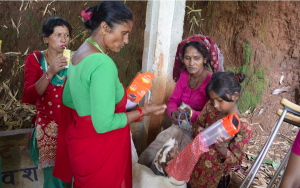
IN THE PHOTO: Women holing solar-powered lamps. PHOTO CREDIT: Empowergrid via Flickr
EG provides low-interest loans, business skills training, mentorship and access to a supply chain of clean energy products, such as solar lights and cookstoves, to rural women to start their own distribution franchise. Since 2011, EG has helped 23 women start 20 businesses, deploying 300 sales agents across 12 districts in Nepal. This distribution network of women-led businesses has sold 58,580 clean energy products; afforded 294,626 people with cleaner safer, light and power; saved families USD 2,145,617 in household energy expenses and displaced 12,843 tons of CO2.
Gender Inequality in Nepal
While Nepal has made some effort to address culturally ingrained gender discrimination and systems of inequality, it still ranks 144 out of 188 on the 2016 United Nations Gender Development Index (GDI). Despite the Nepalese government instituting laws to combat gender discrimination through the Women’s Bill (2002) and the Gender Equality Act (2006), and the current President of Nepal being a woman (the position has little power as the Constitution explicitly bestows power to the Council of Ministers and the Prime Minister), Nepalese women still face obstacles in gaining access to education and economic equality.
In terms of education, the national average literacy rate for women is 55 percent compared to 81 percent for men, according to the Asian Development Bank. The GDI estimates that women have 3.2 mean years of schooling in contrast to men who have five years. Women also do not have easy access to property rights. The ability to own property in name is the foundation for overall economic well-being. Land collateral is the number one requirement for obtaining any kind of loan in Nepal. According to the International Organization for Migration, 19.7 percent of women own an estimated 5 percent of land in Nepal and only about 11 percent have effective control of their property even though about 75 percent of women are working in agriculture as their primary occupation.
With lower education levels and a lack of property rights in an agrarian dominated economy, rural women in Nepal have little chance of earning a higher income. This, along with systemic poverty, a patriarchal society, and an illegal but pervasive dowry system, leave rural women marginalized and vulnerable to slavery and human trafficking. UNICEF approximates that 7,000 Nepalese women and girls are trafficked to India every year.
19.7 percent of women own an estimated 5 percent of land in Nepal and only about 11 percent have effective control of their property even though about 75 percent of women are working in agriculture as their primary occupation.
Women’s Empowerment
Empower Generation is working towards SDG 5: combatting gender inequality through entrepreneurship and leadership. By earning an income, women entrepreneurs in EG’s network report that they have more say in making financial decisions and earn greater respect among family members. In some cases, family members are initially opposed to women working outside the home, but change their thinking as family income increases and ownership of a business adds to the family’s assets. For example, entrepreneur Lalita Chaudhary faced opposition from her husband Jayram when EG initially approached her to start her own business. He was concerned about Lalita working outside the home and interacting with other men. After some time, Jayram changed his mind, seeing EG’s commitment to support his wife, her resolve to be a success, and how Lalita’s ownership of her business added to the family’s wealth.
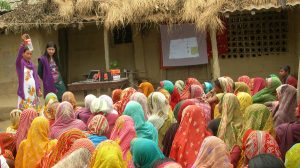
IN THE PHOTO: Lalita making a presentation in front of a crowd. PHOTO CREDIT: Empowergrid
Jayram is now the biggest supporter of Lalita’s business Grameen Urjah, working as her sales agent part-time. Lalita still faces challenges in her community as a women entrepreneur. She says: “Whenever I go out, my neighbours talk behind my back and say: “she cannot have a business because she is a woman.” However, this has made Lalita want to share her business acumen with other women in her village, “so they are empowered just like me.”
Despite initial community scepticism, 92% of the women entrepreneurs in our distribution network report that their opinions are more respected in their communities since starting their own businesses. In addition, 50% of EG’s women entrepreneurs reported that they are more involved in local politics than before. This year, local elections in Nepal were held for the first time in 20 years. The government encouraged women to participate as part of a mandate in an effort to create a better gender balance. Political candidates are known in their communities for their leadership and community work. They must be nominated by political parties in order to run for election. Six women entrepreneurs in EG’s distribution network were nominated to run for various leadership positions in their communities, including, vice president of the village municipality, deputy mayor, and ward member. Two EG entrepreneurs won their elections: Chhaya Devkota became Deputy Mayor of the Bhajani Municipality in Kailali District, and Gita Pariyar became Ward Member in Taklung, Gorkha District. Prior to becoming an entrepreneur, Gita educated people in her community about sanitation and clean cookstove usage. She earned very little money and worked mostly as a volunteer. After becoming a clean energy entrepreneur, Gita’s business made approximately USD 11,300 in annual revenue and currently employs 12 sales agents. As Ward Member, Gita along with other committee members will be responsible for the planning and development of construction projects, working with the different stakeholders involved and providing progress reports to the municipality. In her new role, Gita, who is from the Dalit (untouchable) caste, says she wants to become a voice for the voiceless and change the fate of the disadvantaged. She wants to increase economic development and bring employment opportunities to her community. Earning an income, employing people, managing a business, and being active in the community gave Gita the skills, confidence and visibility to be nominated, run, and win her political position. If rural Nepalese women, like Gita, are not empowered economically and politically, they cannot address the gender inequities in their communities.
IN THE PHOTO: Gita Pariyar celebrating her victory. PHOTO CREDIT: Empowergrid
Affordable Energy Access
Women’s entrepreneurship not only empowers women and addresses gender inequality but can also address other SDGs. For example, EG’s distribution network is working towards SDG7 (delivering access to affordable clean energy by 2030). Energy-poor communities spend money on expensive and dangerous kerosene, disposable flashlights, and candles or spend much of their time collecting fuel sources. Women and girls are more negatively impacted by a lack of energy access, as they are expected to collect fuel and are exposed to indoor pollution from cooking with charcoal, dung or wood. In 2012, more than 60 percent of all premature deaths from household air pollution were among women and children, according to the World Health Organization.
Women suffer the most from the energy poverty paradigm and have the most to gain from switching from traditional fuel sources to clean technology. They are the key to last-mile distribution of clean energy products because as household energy managers they already have knowledge of local energy markets and know the energy needs of their communities. Our women-led network of businesses fills a gap for rural communities with little to no reliable power from existing infrastructure or that rely on biomass as their main energy source. EG’s network provides high quality, affordable clean cookstoves, portable solar lights, and off-grid solar home systems to rural, remote communities that do not typically have access to these types of products.
EG’s distribution network is not only focused on providing physical access to its customers but also on providing financing and payment options for rural customers. Many customers requested a more stable-grid like experience, but the cost of a solar home system seemed prohibitive. Businesses in EG’s network are piloting a pay-as-you-go mobile payment system for larger home systems, offering families an opportunity to purchase these more expensive products. A mobile money payment option allows customers to make instalment payments via their mobile phone rather than in cash. Rural, remote customers can save money by making payments compared to traditional methods because they do not have to travel far distances to make cash payments in person to a sales agent. For example, customer Tilak Devi Chaudhary, a farmer and widow with three children living in Kailali District, wanted a reliable lighting system. Her area suffers from chronic power cuts, but she could not afford to buy a large home system, which retails for approximately USD 110. With the pay-as-you-go payment system, Tilak Devi was able to purchase a home system, making monthly installment payments. She mounted the lights in her kitchen and children’s room where they can now study uninterrupted when there are power cuts.
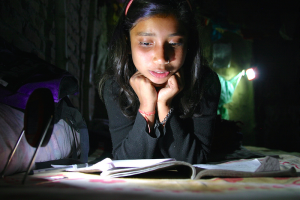
IN THE PHOTO: Girl reading with a solar-powered lamp. PHOTO CREDIT: Empowergrid via Flickr
Sustainable Employment Opportunities
Women’s entrepreneurship can offer job opportunities to women as well as others who typically have difficulty finding employment. EG’s women-led distribution network is working towards SDG8 (providing job opportunities and sustainable growth). Our model gives rural women, who have few employment options, a chance to become business leaders by providing start-up capital, business skills training, sales and marketing support, and mentorship. Several women in our network come from circumstances that would make it difficult to find employment and support their families if they were not entrepreneurs. For example, entrepreneur Runa Jha, a widow from Janakpur, is the sole breadwinner for her family of three children. Runa lives in a culturally conservative area where men dominate the community. Without EG’s support, the only employment opportunity she would have is doing handicraft, which pays little. Through EG, Runa says: “I became an entrepreneur and earned enough to support and educate my children”.
EG’s model has helped 23 women start their own businesses, and they, in turn, have become employers. Many of the women in our network understand how hard it is to find a job, and they tend to hire sales agents who typically have trouble finding work. For example, entrepreneur Nithoi Sunar from Pokhara District comes from a lower caste. She is passionate about eradicating the suffering of marginalized people in her community and proving that fate is determined by education and hard work, not by caste. Through her business, Nithoi is providing employment opportunities to her community to work as her sales agents. EG’s distribution network of women-led businesses has created jobs for 300 sales agents: women, girls, and men, who have little chance for employment due to age, lack of education, caste or gender.
In sum, women’s entrepreneurship can play an important role in addressing the SDGs. In Nepal, our women-led distribution network has challenged cultural norms and perceptions around gender (SDG 5); provided access to clean, affordable clean energy to last-mile communities (SDG 7), and created sustainable employment opportunities (SDG 8). This fulfils our mission of empowering women to power the world.
Empower Generation is focused on providing sustainable employment for vulnerable women. Currently, it is fundraising to train and mobilize 300 rural Nepalese women to become sales agents.
IN THE PHOTO: Launching of pay-as-you-go home system. PHOTO CREDIT: Empowergrid via Flickr
EDITORS NOTE: The opinions discussed here by Impakter.com columnists are their own, not those of Impakter.com


